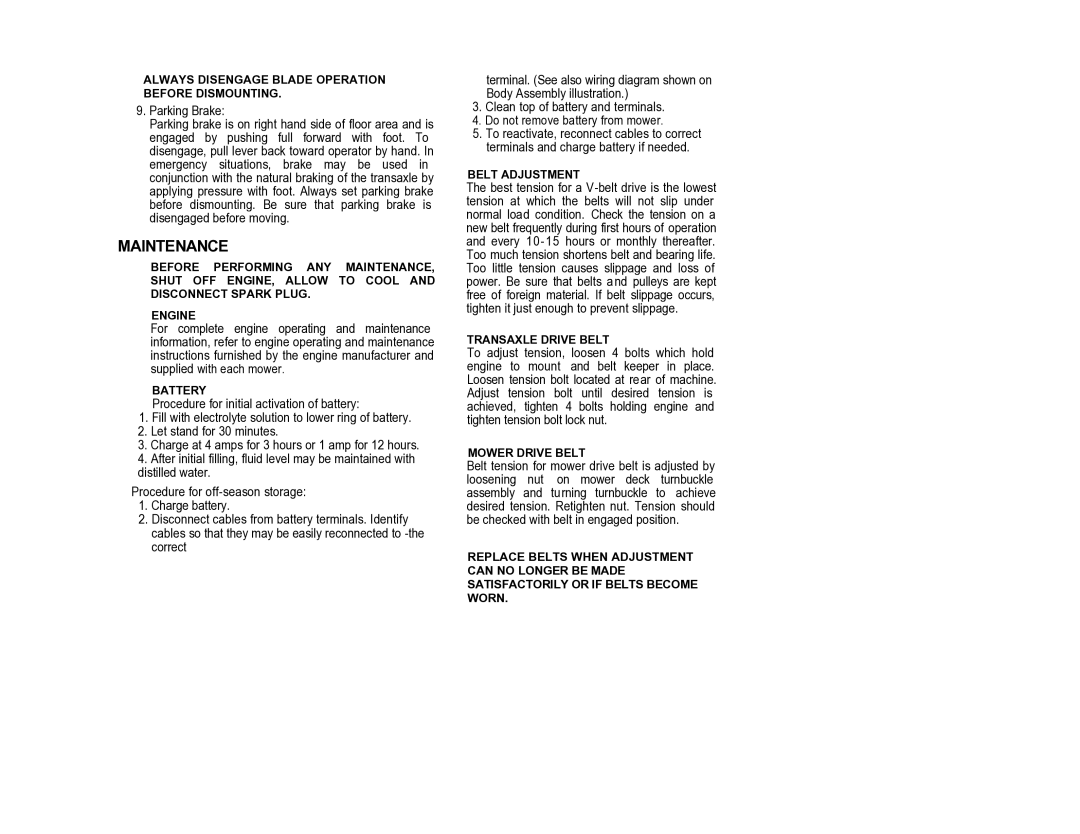422 & 424, 422, 424 specifications
Dixon 422 and 424 models have established themselves as prominent options in the realm of networking and communication technologies. These models are designed to meet the increasingly diverse demands of modern applications, delivering exceptional performance and reliability.The Dixon 422 features a compact design with a robust framework suited for various environments. This model boasts high-speed processing capabilities, enabling seamless data transmission and efficient handling of multiple connections. The 422 is equipped with advanced security protocols that protect sensitive information, making it ideal for enterprise applications. With its user-friendly interface, the device simplifies management and configuration tasks, enabling rapid deployment within any organization.
On the other hand, the Dixon 424 model extends the capabilities of the 422, offering enhanced features aimed at high-demand settings. The 424 operates on a versatile platform that supports both wired and wireless connectivity. This flexibility allows for easier integration into existing networks, accommodating various user requirements. With multi-layer security architecture, the 424 ensures data integrity and privacy in an increasingly connected world.
Both models incorporate cutting-edge technologies such as Quality of Service (QoS) features, which prioritize critical network traffic, enhancing the user experience for real-time applications like voice and video. Additionally, they include support for IPv6, ensuring compatibility with the latest internet protocols and future-proofing investments as global networks evolve.
The character of these devices is defined by their scalability and modularity. Users can customize configurations based on specific needs while easily upgrading components to keep pace with technological advancements. Furthermore, both models are designed for energy efficiency, reducing their environmental impact while lowering operational costs.
In conclusion, Dixon 422 and 424 models represent a modern approach to networking technology, focusing on performance, security, and user adaptability. Their robust features and cutting-edge technologies make them suitable for organizations looking to optimize their network environments. With a commitment to reliability and innovation, Dixon continues to pave the way for effective communication solutions in an ever-evolving landscape. Each model, whether 422 or 424, assures users of a comprehensive solution tailored to contemporary demands, ensuring seamless connectivity and operational success.
